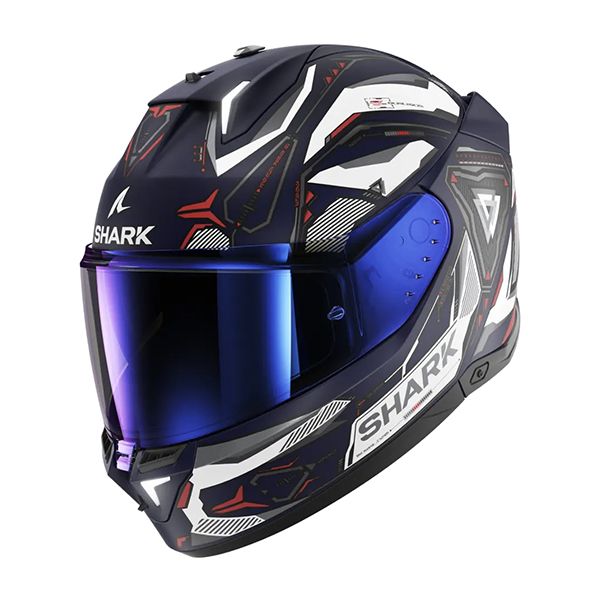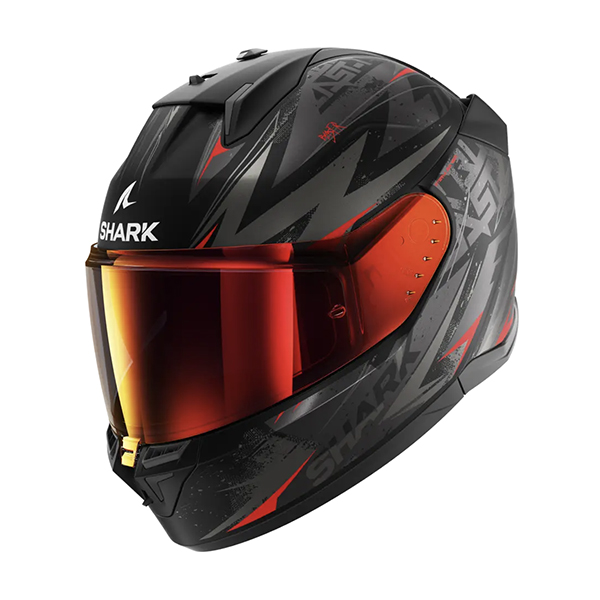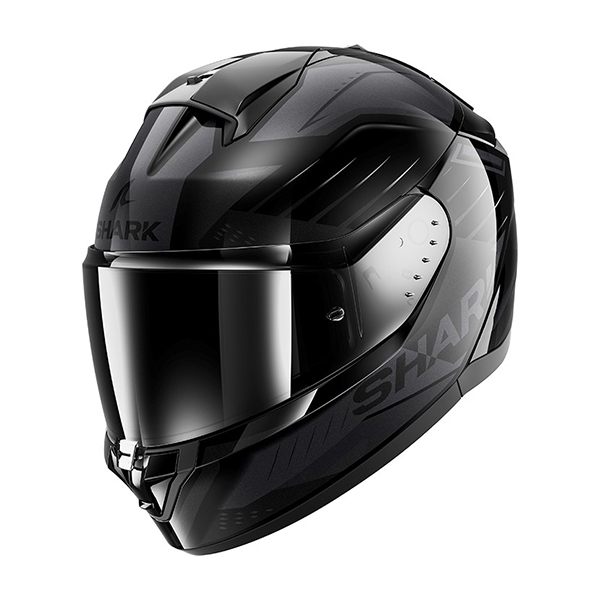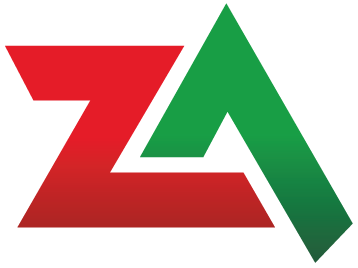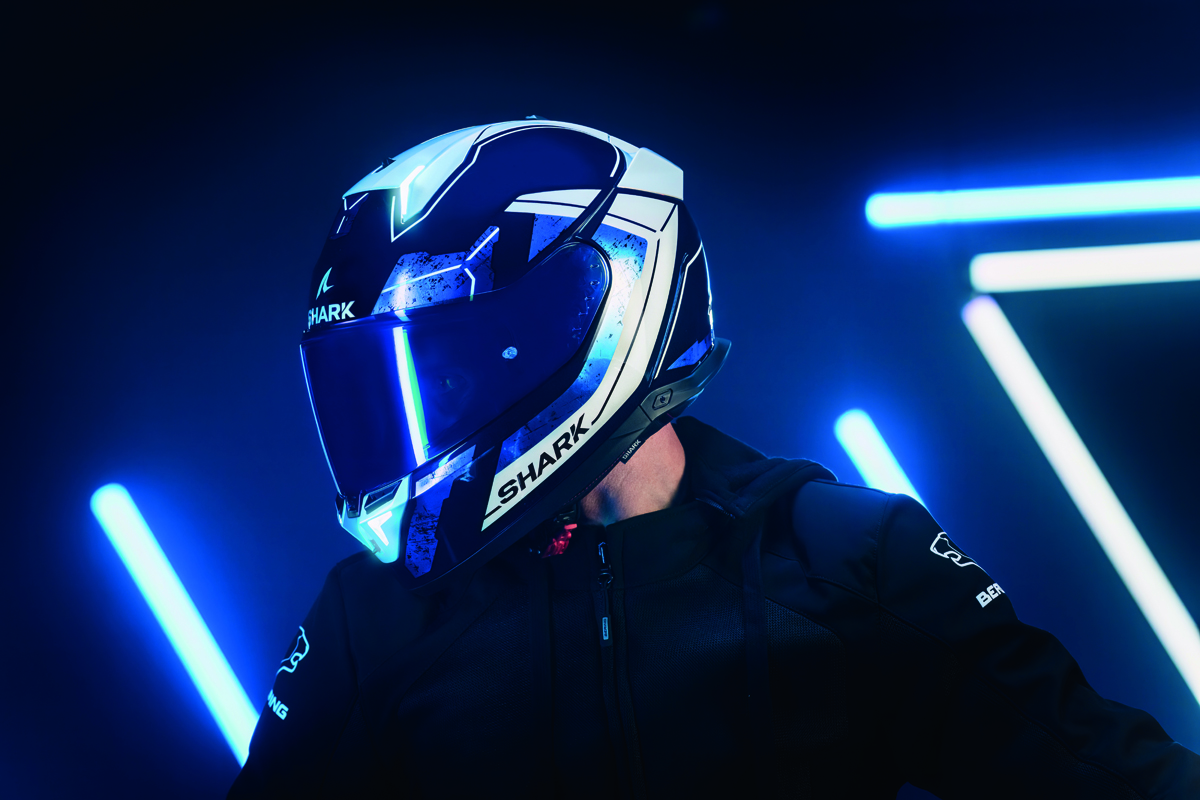
The French helmet brand Shark has been making waves in the helmet industry for almost 40 years. Whether it be the first helmet with visible carbon in the 90s, the first helmet in the world to be ECE certified in a full and open face, the first 4-mm visor with an optical 1 class rating or leading the charge in industry safety with the 2015 Skwal being the world’s first helmet to incorporate LED lighting—Shark is always seeking new heights.
Shark is no small-time player in the industry, they manufacture over 300,000 helmets per year, create new concept helmets annually and with the two founders Robert and Andre Teston, Shark guarantee high levels of performance and safety that exceed all standards. The same can be said about the South African Importers of Shark helmets, Langston Motorsports. What started as a father and son taking on the world of Grand Prix racing and importing premium products for themselves and close friends, soon turned into a business that has been successfully run and known for only premium products for the last 24 years.

What sets Shark apart from the competition? Firstly, all Shark helmets are designed in France and are manufactured using what Shark calls ‘Reverse Engineering.’ Reverse engineering is when a helmet is designed from the inside out, which ties in with Sharks ‘Best Fit’ development. They do this by using the rider’s head shape as the starting point and then perform 3D head shape scans for the best fit. As a result, every line, curve and feature of a Shark helmet must have a function and purpose which positively benefits the rider.
So, with Christmas around the corner, Langston Motorsports want to tease you with three new and improved daily commuter Shark helmets. We are talking about the exciting and techie Skwal i3, the practical D-Skwal 3 and Shark’s favourite entry-level Ridill 2.
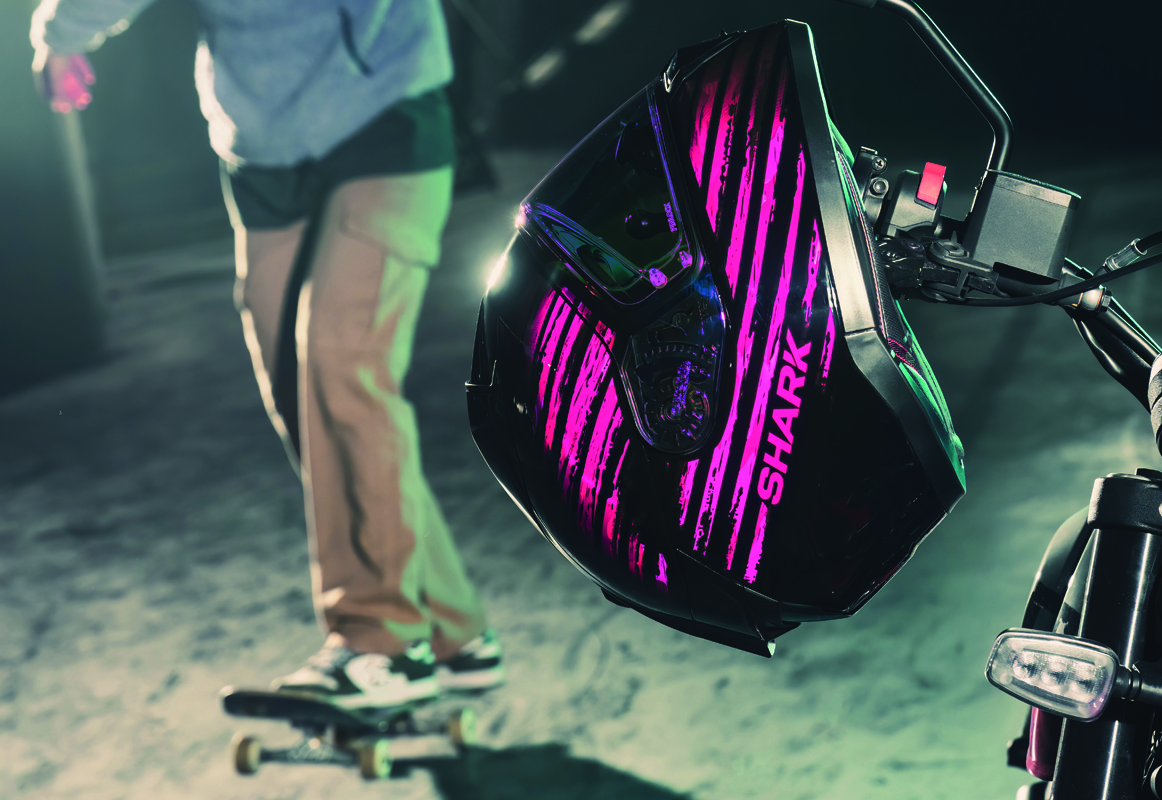
SKWAL i3
The Skwal i3 is the most exciting and attractive as far as looks and safety go out of the three Sharks we’ve got here today. Just like the OG 2015 Skwal, the ‘i3’ builds onto the lineage not just with its forward-facing LEDs, but with the additional feature of intelligent active brake lights behind the rear spoilers as standard for 2023. This feature has been cleverly designed to function without the need for a Bluetooth connection or wires, the industry-leading tech uses an in-built triaxial accelerometer to activate red LEDs on the rear of the helmet during braking.
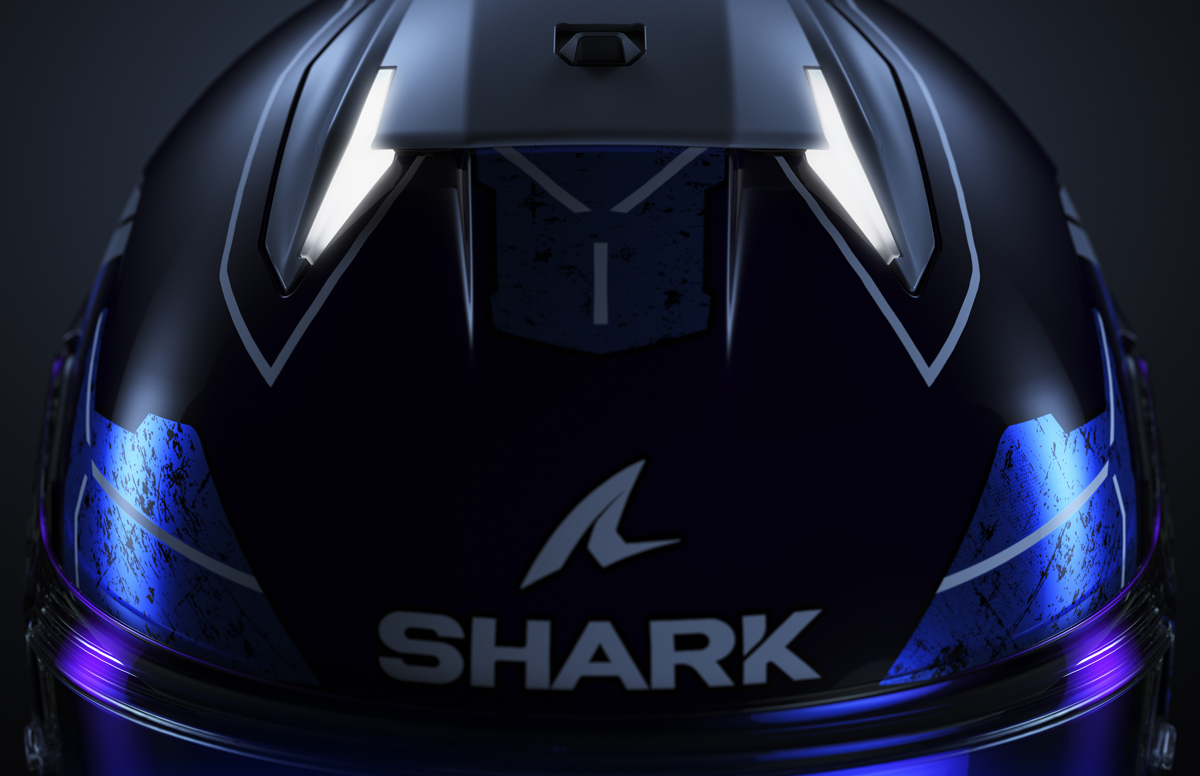
This is a feature that I think for the South African commuter makes total sense, especially with our load-shedding schedules being increasingly unpredictable and with a lot of SA folk driving bakkies, SUVs and lifted vehicles, this makes it even more difficult for them to see our low headlights and taillights on the roads. This is where the button located on the left side of the helmet comes in handy. This activates the front lights and rear brake lights that flash three times a second during normal braking, and five times per second when braking harder. The i3 has a USB charge port behind the neck pad for charging the internal battery, which lasts riders 12 hours of use.
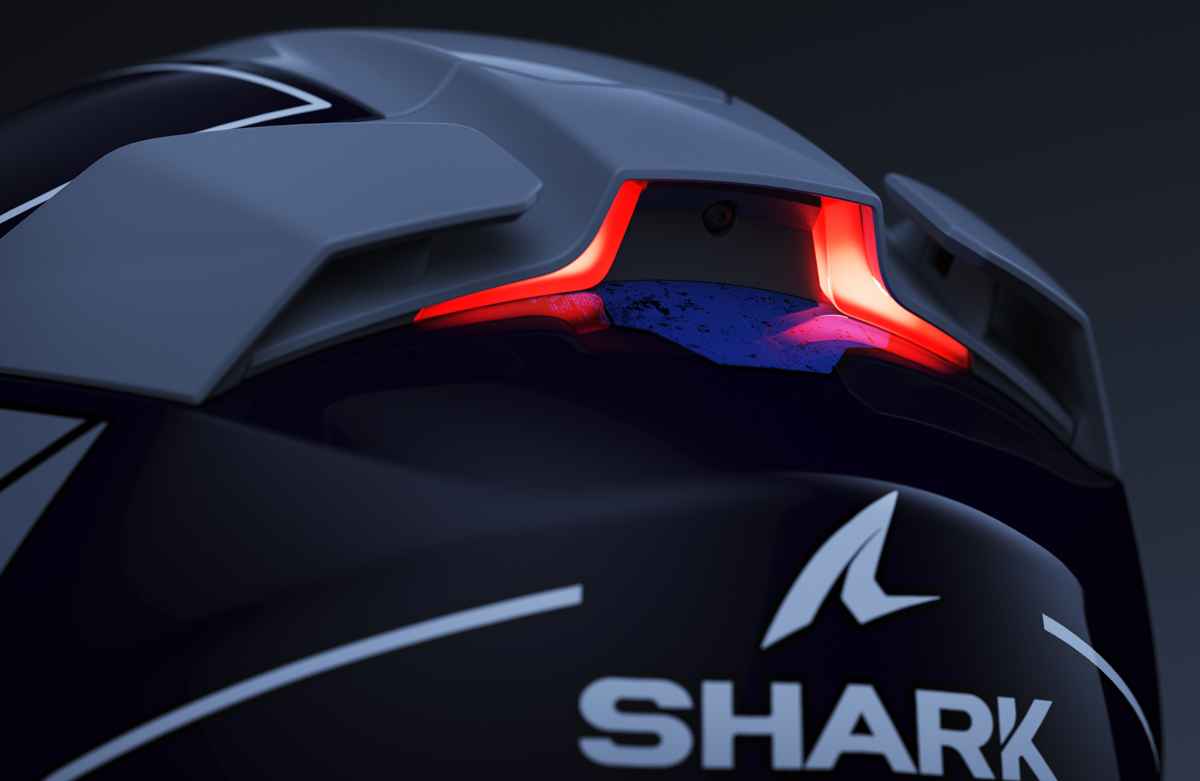
Tech aside, the Skwal i3 is an UNECE 22-06-compliant full-face helmet and comes in a selection of graphics, solid colours and is made from a high-impact Lexan injected polycarbonate structure combined with multi-density EPS shells. On the head, this year’s i3 fits snug, has a higher quality interior than the D-Skwal, has fixtures for the Sharktooth® Prime intercom and for those who wear glasses, there are additional sliders for comfortable positioning.
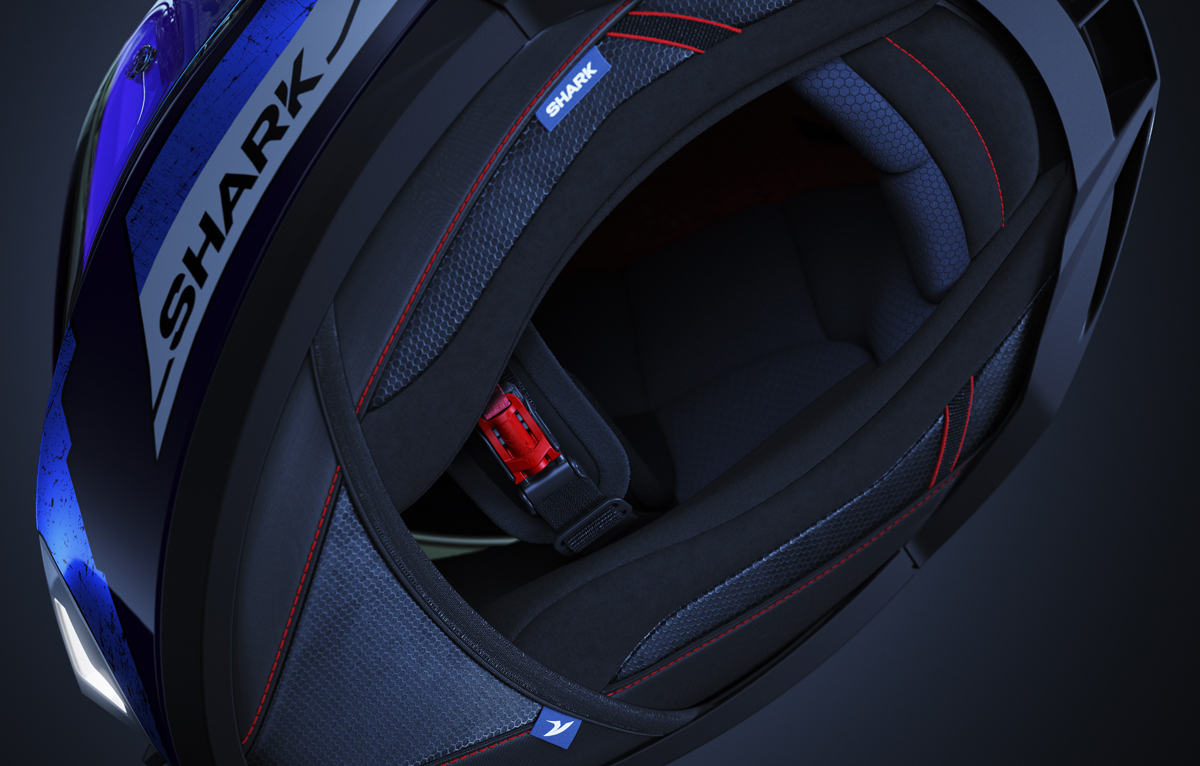
As far as airflow goes, you’ve got four inlets, two on the chin and two right at the top of the helmet. Without having spent any time riding with the helmet as of yet we can’t say whether the airflow is sufficient or if having no exhaust vents will be affected by our hot climate. Airflow aside, the i3 has an anti-scratch and anti-fog sun visor, tool-free removable high-resistance optical class 1 anti-scratch screen and is equipped with a PINLOCK® 70 and tension adjustment levers.
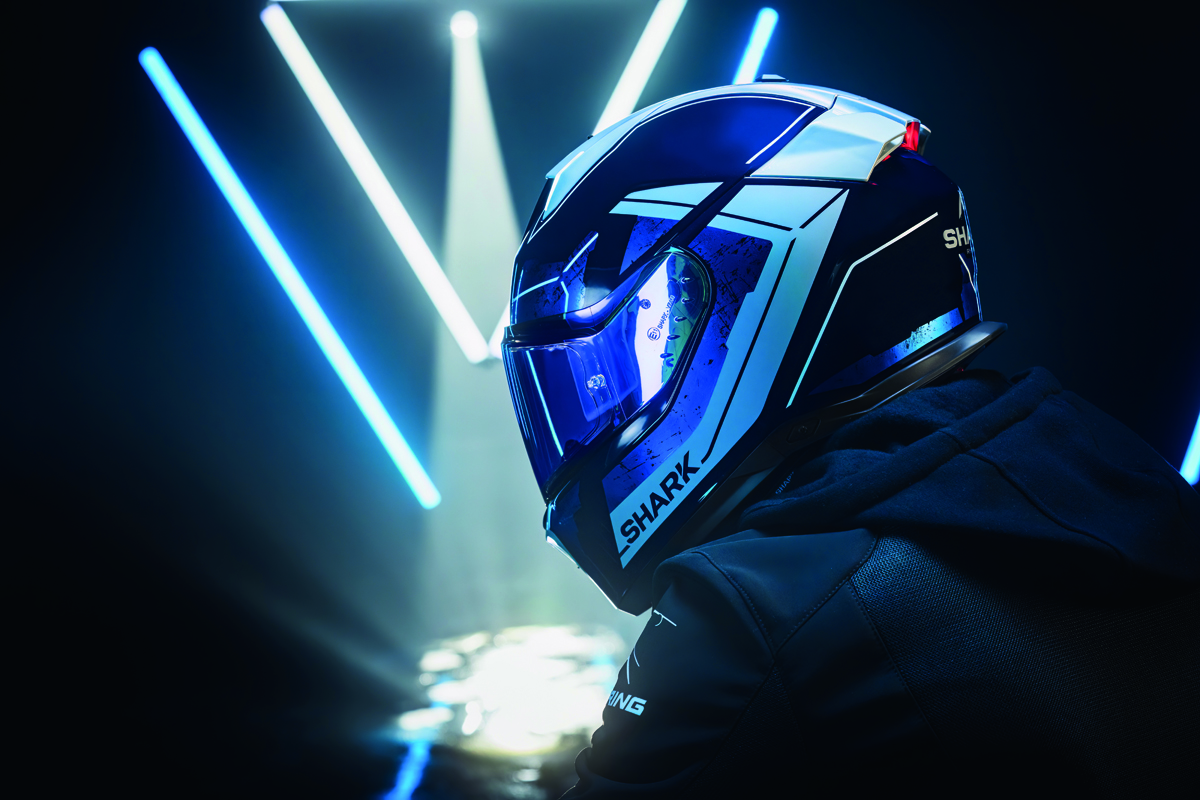
What really intrigued me about the i3 is that it only weighs 30 grams more than the D-Skwal 3 with all the added LED lighting at 1570g in a medium. In summary, the Skwal i3 is an extremely attractive helmet and offers the daily rider everything they could want in a street helmet.
D-SKWAL 3
The D-Skwal is all the helmet the i3 is, minus the LED lights and higher-quality interior. Frankly, LEDs aside the D-Skwal is still extremely comfortable and looks killer compared to the outgoing Skwal 2 lid. The third generation of the D-Skwal really does leave its mark with an even more aggressive look and exceptional new standard features mentioned above.
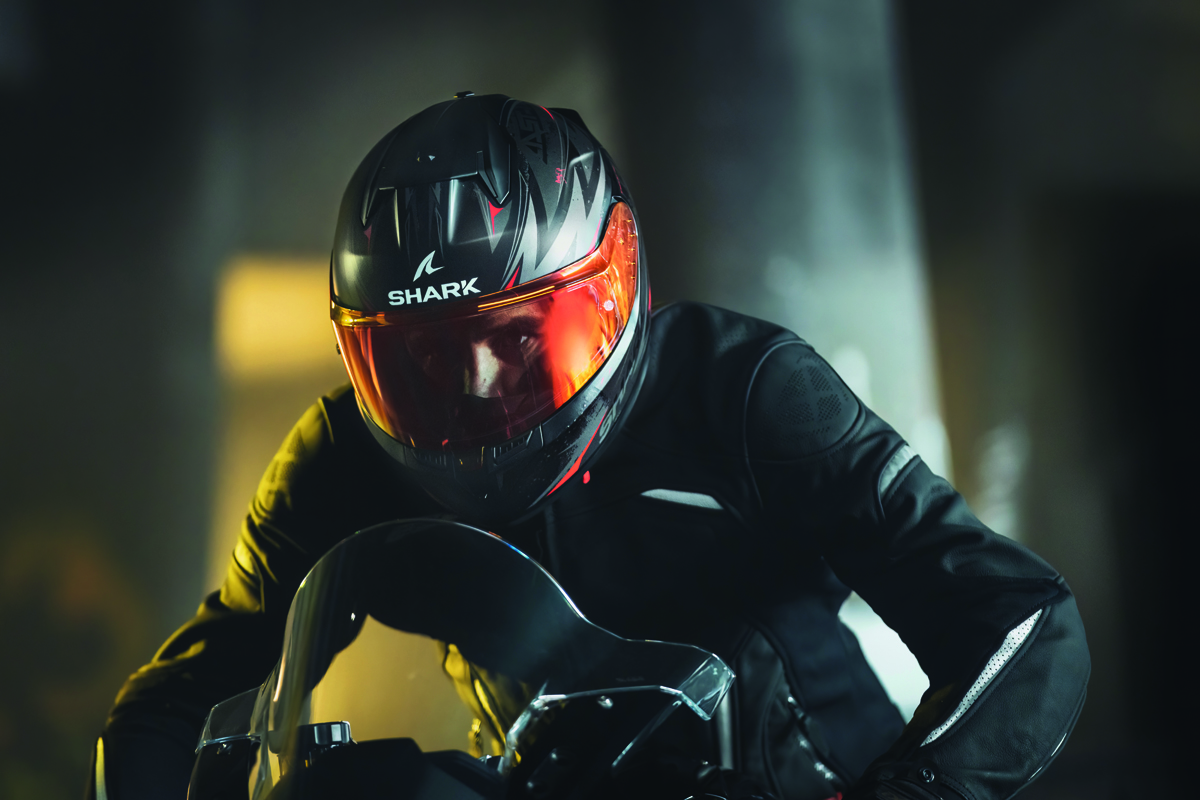
The elongated look and rear spoilers make this year’s Skwal for me, look like Shark’s sporty Spartan RS. Until pricing is announced and you’ve slid on both Skwals onto your head, the only determining factor will be personal preference.
RIDILL 2
For the newbies and budget buyers the Ridill 2 is an awesome option from Shark. As far as looks go the Ridill has a more rounded look compared to the Skwals, loses the rear spoilers and has a more budget interior. However, this is nothing to be concerned about, in fact, the Ridill has exhaust vents for expelling air out of the helmet, unlike the two Skwals.
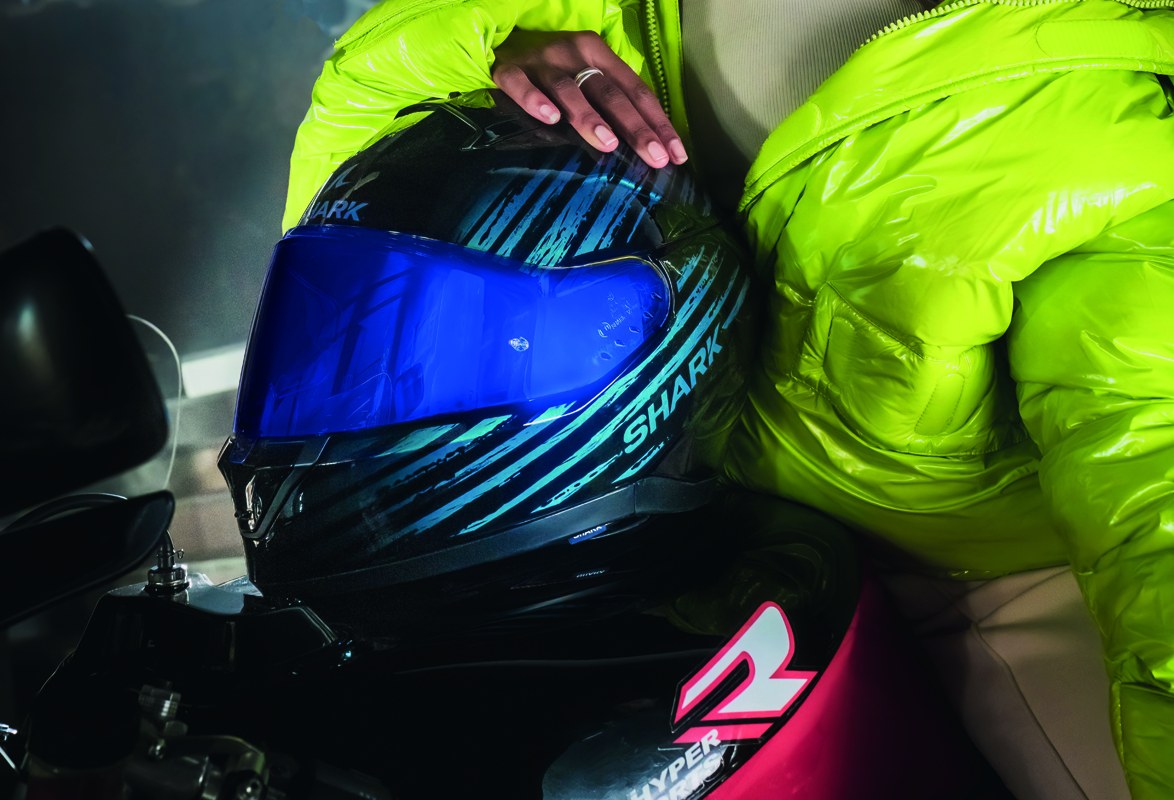
As far as the shell, visor and sun visor go the Ridill is on the same page as the Skwals, this means the Ridill offers the same safety standards and an exceptional level of equipment for what we think is going to be a no-brainer of a price come December. The Ridill is also lighter than both Skwals at 1470g. When it comes to sizing you can expect to find a helmet from Shark in a XS up to XXL.
So, there you have it, if you are craving a new lid or want something that stands out going into 2024, give Shark Helmets a closer look.




